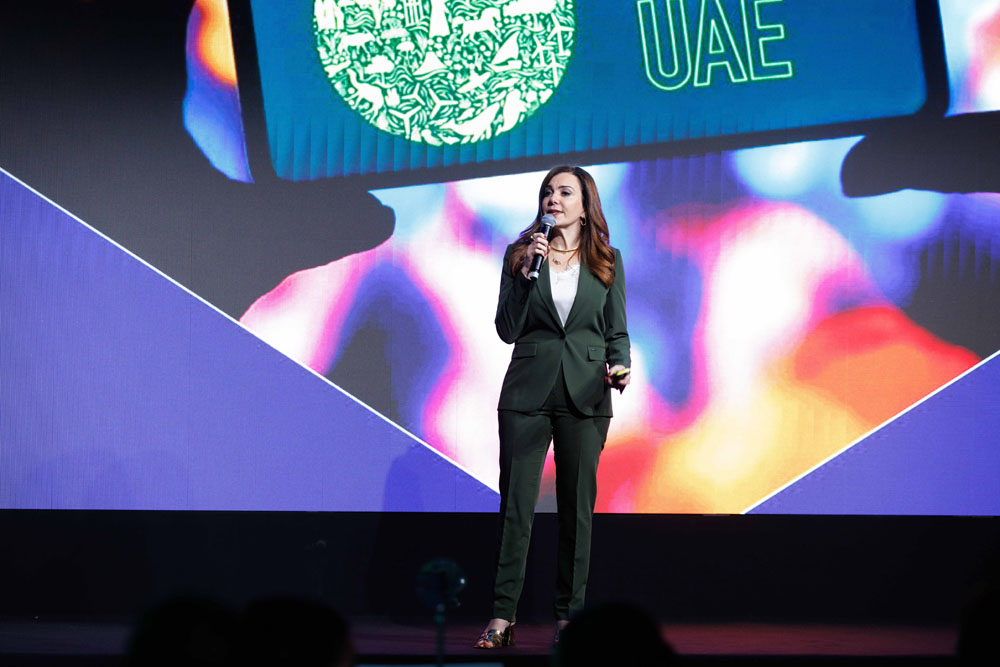
Destiny has always been an interesting concept to me. There are those who believe it happens to us, and those who believe we shape it. I belong somewhere in between. While I definitely think we can take steps to shape it, we also often find that it meets us where it’s meant to, whether we like it or not.
Much like destiny is sustainability. You can embrace it from the get-go and shape the trajectory of your life and business as ‘sustainable’ or you can attempt to avoid it – only to be ambushed by it somewhere down the road.
That’s why it’s so important for us to forge our own climate destiny – take control of it so you’re not surprised and forced into action when left with no other option. Because whether we like it or not, that’s where we’re headed.
Climate action and sustainability are inevitable if we want to continue to inhabit our world. At the rate the world is currently depleting resources, we will soon require 1.7 Earths to sustain our existence. Biodiversity is vanishing, clean water is becoming scarce and the road to clean energy transition is lined with challenges. In simple words, our future and the future of our children is at great risk.
In the face of this ominous fate, the world is focusing on mitigation. But as the historic COP28 in the UAE – that took place in our very own backyard – showed us – the focus now needs to be on adapting alongside mitigation. We need to learn to live with the changes and consequences of our actions.
The numbers speak for themselves – showcasing how important it is to make this mindset shift. Currently, for every ten dollars spent on mitigation, only one dollar is spent on adaptation. But what exactly does this mean?
Mitigation means working to reduce the impact of climate change. This may look like attempting to keep global temperatures from rising over the 1.5-degree threshold or reducing carbon emissions by 40 per cent using renewable energy initiatives, energy efficiency programmes, reforestation policies and decarbonisation in transportation.
Adaptation, however, takes a slightly different approach. We’ve made our bed; how do we lie in it? By investing in climate-resilient infrastructure, natural resource management, coastal defence systems and disaster risk reduction programmes.
COP28 heavily focused on fixing this imbalance and addressing the lack of financing towards adaptation measures for sustainability. Part of this included discussions to get wealthy countries to commit to paying for damage their emissions caused to lesser developed countries with lower emissions and carbon footprints. This is another form of adaptation – paying for consequences of our actions and aiming to reduce future actions of this magnitude.
So now that we’ve established that sustainability needs to be imprinted in the mind of every business and individual – let’s address the real question: Are consumers ready for this shift?
The answer is a resounding yes. In 2022, 93 per cent of consumers maintained or increased their sustainability purchases in 2022. Products marketed as sustainable saw nearly 3 times the growth. Almost half of all new products now mention sustainability in their pitches – clearly appealing to what is a more conscientious consumer base.
Customers are evidently adopting a new more sustainable mindset. Which means marketers need to hop on the bandwagon and make the shift too. This means more than just switching to sustainable packaging or reducing plastic use.
It’s about combating greenwashing with authenticity, prioritising ESG initiatives and supporting the development of innovative sustainable products. It’s about educating and advocating for sustainability – not as a niche, but as a norm. And most importantly – collaborating across industries for systemic change.
We as marketers and communicators hold immense power to influence change and impact in the world. Our voices, choices, and actions can shape the destiny of our planet. So, let’s choose wisely, act boldly, and speak loudly for a sustainable future. This destiny is not just ours, but that of the countless generations to come. Let’s make it one of promise, resilience, and success.
And to the youth I say, the future belongs to you – take over the planet handed over to you and make it a better place to live, for yourself and your successors.
By Marwa Kaabour, Group Head of Marketing and Corporate Communication at Al Masaood









